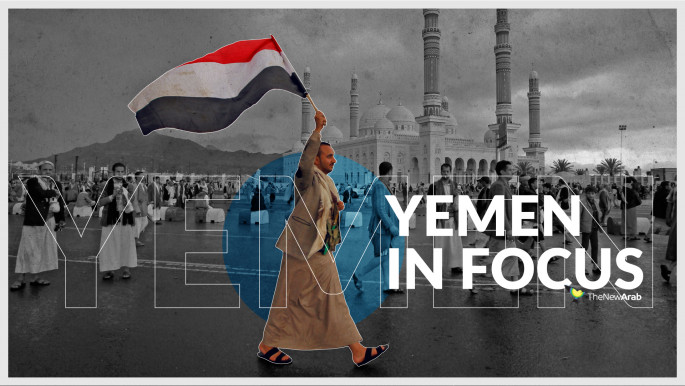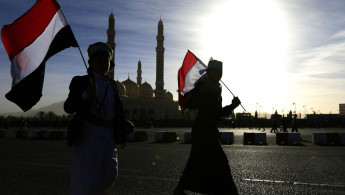Yemen in Focus: Why France is complicit in 'war crimes' against civilians
Brace yourself, there's plenty of Yemen developments to chew on this week.
Tragically for the people of Yemen, US President Donald Trump vetoed a bill passed by Congress to end the US role in the devastating Yemen war, dismissing concerns raised by senators, rights organisations and global activists fighting to bring an end to "the world's worst humanitarian crisis".
In a break with the president, Congress voted for the first time earlier this month to invoke the War Powers Resolution to try to stop US involvement in a foreign conflict. However, the staunch Saudi ally summoned the second veto during his presidency to shoot down the vote. The 247 to 175 House of Representatives votes means Congress lacks the power to override the president.
Unsurprisingly, the United Arab Emirates, Saudi Arabia's main partner in the Arab coalition leading the brutal intervention in Yemen, praised Trump's decision to veto the bill, saying "common strategic interests are best served with this clear commitment."
France exposed
Across the pond in Europe, French authorities were left in hot water this week after a classified military note revealed the extent of Paris' hand in the killing of civilians in Yemen.
The note from the French military intelligence service, which contradicts public statements from France's government, said French weapons – including artillery, tanks and ships – were being deployed by the UAE and Saudi Arabia in their ongoing deadly war against rebels in Yemen.
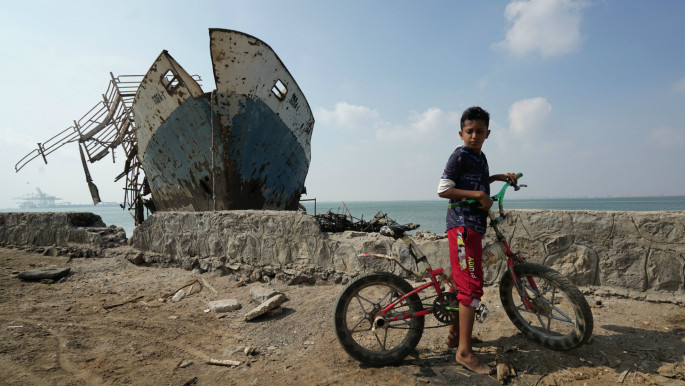 |
|
| Read also: The dangers of war and climate change in Yemen |
Rights groups have regularly accused Paris of being complicit in alleged war crimes committed in Yemen where thousands have died and millions have been forced to the brink of starvation.
The revelations, which were first published by new investigative media outlet Disclose, exposes Paris, which has always insisted that the arms sent to the coalition were only used in defensive circumstances to deter attacks by the Houthis.
France, the third-biggest arms exporter in the world, counts Saudi Arabia and the UAE as loyal clients in the Middle East and has resisted pressure to stop the arms trade – unlike Germany, which has suspended sales. Take note France.
Hadi shows up
On the ground in Yemen, self-exiled President Abedrabbo Mansour Hadi finally showed up in the country this week to do his job (cough) – chair a rare session of parliament.
More than 130 lawmakers attended the session of parliament in Seyoun where they elected Sultan al-Borkani as speaker. The 301-member assembly was elected to a six-year term in 2009 – which if we stop to do the maths, has been expired for a while – and is split between Houthi supporters, government loyalists and as well as independent factions.
Nevertheless, the move marks the restoration of Yemen's most essential institution and was rightfully seen as a step in the right direction for the country. Despite his overall lack of usefulness, the presence of Hadi at the session in Hadramout suggests the government is finally willing to actively kickstart political and national conciliation in the country. Let's just hope for the best.
 |
The presence of Hadi at the session in Hadramout suggests the government is finally willing to actively kickstart political and national conciliation in the country |  |
Children sexually-assaulted
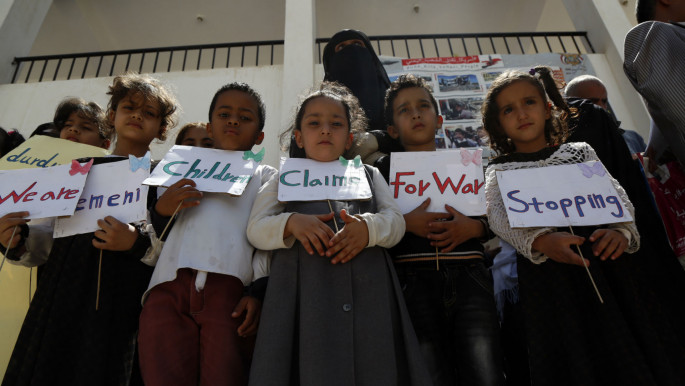 |
|
| Read also: Who killed Sanaa's schoolchildren? |
In more sinister news, the UN Special Representative for Children and Armed Conflict Virginia Gamba said that more than 7,500 children have been killed and maimed in the war, noting "more than 3,000 children were verified as recruited and used, and over 800 cases of denial of humanitarian access to children were documented," said the UN official.
Gamba said the data was collated from April 2013 to the end of 2018, warning that many sexual assaults on children may have gone under-reported due the difficulty of obtaining information.
She called on rival factions to take urgent measures to guarantee that their military operations adhere to relevant international laws.
'Scratch my back, I'll scratch yours'
Meanwhile, in what can only be described as good news for the Saudi-led coalition and bad news for the civilians of Yemen, Sudan this week said troops participating in the coalition in Yemen will remain in the war-wracked country until the Arab alliance achieves its goals, a senior Sudanese military official said on Monday.
"We will stick to our commitment with the Arab alliance and our troops will remain until the alliance achieves its goals," Mohammad Hamdan Daglo, the number two in Sudan's new ruling military council told the official SUNA news agency.
Hundreds of Sudanese soldiers and officers are fighting in Yemen, and have often suffered casualties raising calls of withdrawal. But despite the losses, Sudan's now ruling military junta used its first major foreign policy announcement since ousting President Omar al-Bashir to appease the Saudis.
Needless to say, this was shortly followed by a visit by a senior-level Saudi-Emirati delegation in Khartoum – where the the back-scratching was returned with a show of support for the ruling Sudanese military council.
Solutions to end the conflict
Also this week, Yemen's government and Houthi rebels accepted a detailed plan for a much-delayed pullback from the flashpoint city of Hodeida, the UN envoy said on Monday, but no timetable was announced for the withdrawals.
The redeployment of forces was agreed in December under a ceasefire deal reached in Sweden that offered the best hope in years of moving toward an end to the war that has pushed Yemen to the brink of famine.
UN envoy Martin Griffiths told the Security Council that "both parties have now accepted a detailed redeployment plan" for the first stage of the pullback from Hodeida.
On that note, the International Crisis Group, which researches ways to end conflicts, suggested the US help its Middle East ally to exit the war in Yemen, where little progress has been made.
The group, which – let's face it – knows what it's talking about when it comes to conflict resolution, said the kingdom's stalwart ally should appoint a special envoy and suspend most arms shipments to the Saudis with a promise to resume them once the kingdom ends its four-year offensive.
The Saudi-led coalition "needs to stop thinking about how to eke out some notional victory and instead commit itself wholly to finding a political exit, regardless of whether that means empowering the Houthis more than it is comfortable with in the short term", the group said in a study based on interviews with current and former officials in the US and elsewhere.
"The US should lead the way by finding its own exit," it said.
Robert Malley, the group's president, said the Saudis keep thinking "a little more military power and the Houthis will crack and then we'll be able to end the war and Iran will be on its back foot."
"But we have four years of evidence to disprove that."
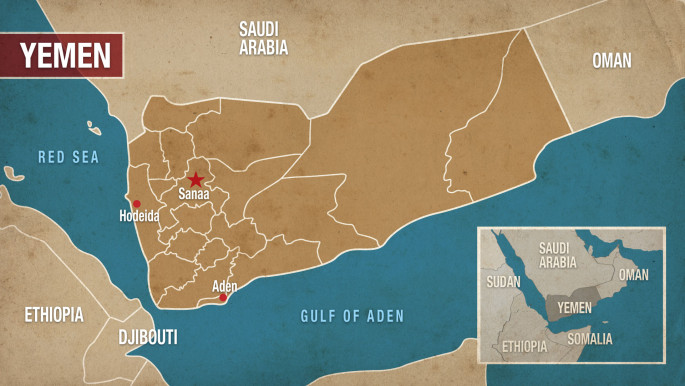 |
|
Time's Most Influential
If you made it this far, it is only right you are rewarded with actual good news from Yemen.
Prominent Yemeni activist and co-founder of rights group Mwatana, Radhya al-Mutawakel made it onto the Time's 100 Most Influential List for 2019.
 |
Yemenis are not starving, they are being starved |  |
Unlike many organisations dealing with Yemen, Mwatana does not fall within any particular camp and is an annoyance to all factions battling in the conflict, documenting hundreds of abuses by all sides, from the rebels to the coalition to the US.
In a Times post on the "courageous" Almutawakel penned by Bernie Sanders, the US Democratic presidential candidate quoted the rights defender as saying Yemen faces the world's worst humanitarian crisis not because of natural disaster but because of man-made armed conflict.
"Yemenis are not starving, they are being starved," she said.
More news from Yemen, same time, same place – next week.
Sana Uqba is a journalist at The New Arab.
Follow her on Twitter: @Sanasiino
Yemen In Focus is a new, regular feature from The New Arab.
